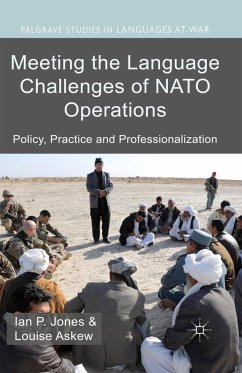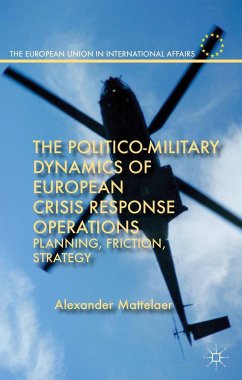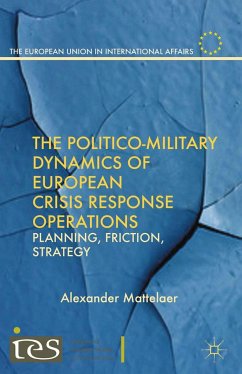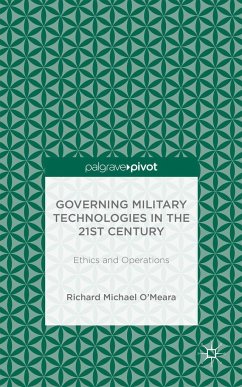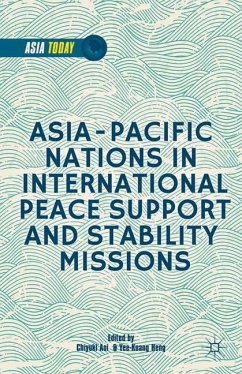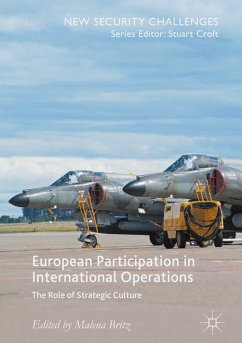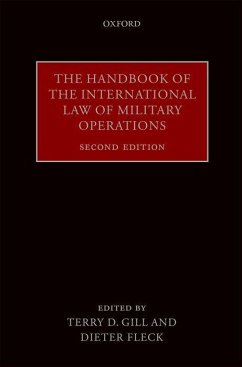
Effective Civil-Military Interaction in Peace Operations
Theory and Practice
Herausgegeben: Lucius, Gerard; Rietjens, Sebastiaan

PAYBACK Punkte
42 °P sammeln!
This book contains unique, firsthand experiences of both the military and civilian actors involved in civil-military interaction processes. It presents lessons learned from a variety of situations, from both NATO-led operations and UN Integrated Missions, and in different geographical areas, such as the Balkans, Iraq, Afghanistan and Africa. Rather than taking the improvisational approach, these lessons learned will enable military commanders and staff and their civilian counterparts in governments, International Organisations and NGOs to come fully prepared for the challenges of today's multi...
This book contains unique, firsthand experiences of both the military and civilian actors involved in civil-military interaction processes. It presents lessons learned from a variety of situations, from both NATO-led operations and UN Integrated Missions, and in different geographical areas, such as the Balkans, Iraq, Afghanistan and Africa. Rather than taking the improvisational approach, these lessons learned will enable military commanders and staff and their civilian counterparts in governments, International Organisations and NGOs to come fully prepared for the challenges of today's multifaceted missions. With a better understanding of the mandates and methods of the various civilian and military actors comes greater respect for each other's comparative advantages. With respect comes smoother cooperation. And with that, efficiency gains and enhanced overall mission effectiveness. Each chapter contains solid analysis and advice, specific to the functions found in military organizations, from Intelligence to Personnel and from Logistics to Engineering. Cross-cutting themes like Gender, Human Rights and Corruption are also included in this work that brings together some of the best that practitioners and academics can offer.



